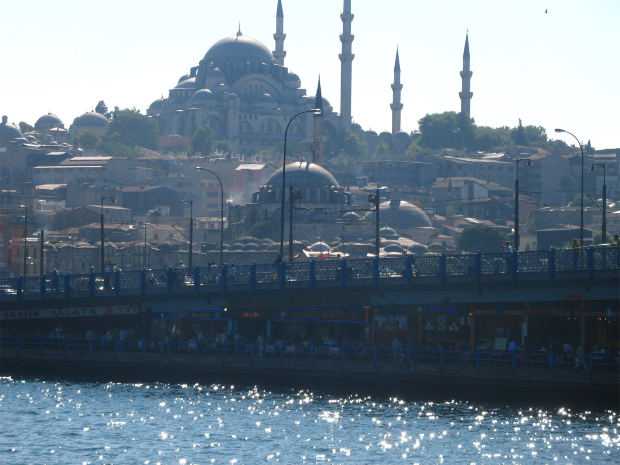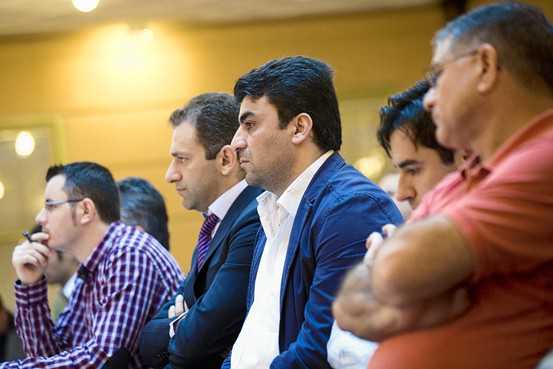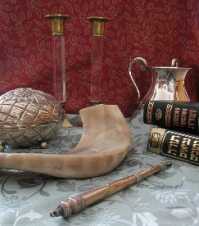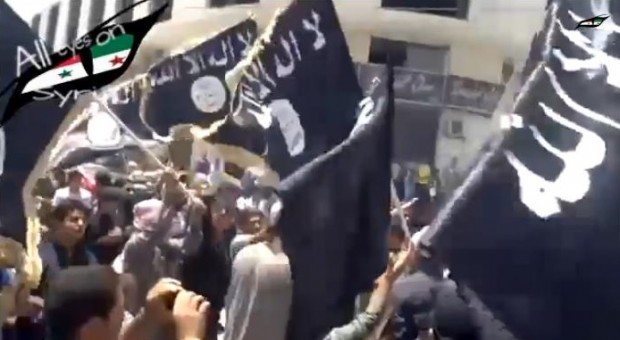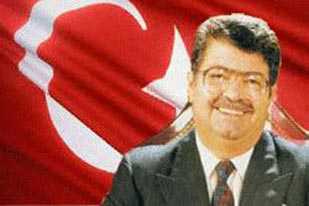 “You know, I am also an engineer” he said to me, looking up from my bio-data, somewhat to my surprise. He was Turgut Ozal , president of the republic of Turkey , to whom I had just presented my letters of credence ( September ,1992) and along with foreign minister Hikmet Cetin ,I had just set down for the customary audience. This meeting lasted for nearly 50 minutes, with Hikmet Bay mostly a silent listener. When we emerged, a worried looking chief of protocol pacing up and down told me that normally such talks lasted 20 minutes or so.
“You know, I am also an engineer” he said to me, looking up from my bio-data, somewhat to my surprise. He was Turgut Ozal , president of the republic of Turkey , to whom I had just presented my letters of credence ( September ,1992) and along with foreign minister Hikmet Cetin ,I had just set down for the customary audience. This meeting lasted for nearly 50 minutes, with Hikmet Bay mostly a silent listener. When we emerged, a worried looking chief of protocol pacing up and down told me that normally such talks lasted 20 minutes or so.
Curiously three of the most powerful and durable leaders since the 1960s coup until the unexpected triumph and takeover of Turkey in end 2002 by Riyadh financed Islamist Justice and Development party (AKP) under Recep Tayep Erdogan ,were all contemporaries at Istanbul’s Technical University and had known each other .The other two being; Sueleyman Demirel , the eldest and seven times prime minister and the president and Nacamattin Erbakan , who when refused a ticket for elections in mid-1960s by Demirel founded his own political party and injected Islam into Turkish politics. Erbakan became the first ever Islamist prime minister to head a coalition in 1996, a post he was asked to vacate by the military for promoting religion in politics .Erbakan’s protégés, Abdullah Gul and Edogan are now entrenched as the president and prime minister respectively at the head of a secular republic with help from yesil surmaye (green money) from Saudi Arabia. Gul had worked at the Islamic Development Bank in Jeddah for 7 years before returning to join hands with Erbakan in 1991.
Ozal took advantage of knowing Demirel , who when prime minister in 1960s and 70s helped the former into key bureaucratic appointments including as his Under Secretary until the 1980 military takeover .After the 1971 half coup which forced Demirel to resign, Ozal left Turkey and studied in USA , worked in private and state sector , an experience which led to his being appointed as deputy PM in charge of economy when the military took over power in 1980 .Leaving Demirel behind , a cause of some heartburn, Ozal surpassed his mentor ,established his own party ,True Path party (DYP), won elections in 1983 and became PM (President Gen Kenan Evren and other generals would have preferred a party they had supported). Ozal then got himself elected as a civilian president, a first since 1960 in 1989 even though his party’s popularity was declining.
There were reasons for my long audience with Turgut Ozal .I had first met with him at a dinner at the Indian embassy in 1971, when he was head of the state planning department and then in 1986 during his visit to India as prime minister. While awaiting dates for the ceremony I had been to our Consulate General in Izmir in west Turkey for the annual trade fair and had flown to our Consulate General in Istanbul for the independence day celebrations; again revisiting unmatched museums, bazaars, historic mosques and Palaces in Istanbul, my most favorite foreign city, laid across a spectacular Bosporus separating Asia and Europe.
And on way to and back by car from Izmir, the old Smyrna, Homer’s birth place (where Aristotle Onasis too lived) I marvelled anew at nearby richest architectural site of Ephesus, the Carian city of St Paul’s church, Virgin Mary is believed to be buried nearby (Scylax, from whose navigation of Indus for Persian Emperor Darius, the West knew first of India, was from Caryanda, also a Carian city); Priene, the spectacular Ionian city, whose oracle along with neighbouring Didim’s was as well known as Delphi’s.And ofcourse ,one of my favourite sites ,Miletus of 6th century BC, of the first thinkers;Thales, Anneximender, Anneximenes, spiritual forefathers of Socrates, Plato and Aristotle, where the roots of Greek and Western philosophy germinated.And of course near capital city Ankara itself , the Phyrigian Gordion (of its Knot and oracle fame ), of King Midas of the golden touch, Sardis, the Lydian capital and Persian Acheamenean Empire’s outpost in Asia Minor of King Croceaus .
While Turkey’s economic and industrial progress when Ozal was prime minister had been admired and documented in international media, I was pleasantly surprised at the tremendous strides in agriculture and forestation .During my first tenure (1969-73) one had to drive a good 50/60 kilometers from Ankara to find a shady shrub growth for a summer picnic outing, but by 1992, new highways were well lined with trees and grass. During winters in Ankara , the only vegetables available were potatoes , onions, cabbage and if you rubbed something dusty ,you guessed it might be carrots .And green chilies were sold like gold .Now, most vegetables including brinjals ,tomatoes, peas, beans , cucumbers ,okras and others were readily available year round ,cultivated down south in Antalya , Izmir and elsewhere where the Sun shines brightly in winters, under plastic hot house cultivation. And also attracting millions of tourists during winter months too on Turkish Rivera along the Aegean and Mediterranean Seas littered with ancient monuments and antiquities from Turkey’s forty civilizations.
So after Ozal had mentally checked the dates of my meetings with him earlier, I told him about the transformation in Turkey since my last posting .He was very pleased since he was credited with lifting the Turks by boot straps and putting them into an industrial age .When Iranian president Ali Akbar Rafsanjani visited Ankara in early 1993, he joked with Ozal that during his bus travel from Iranian border to Ankara in later 1970s, he got a dozen offers for his transistor radio. Ozal proudly gifted him with Turkish made music systems, TVs, video players. I remember buying terrylene shirts, mixies and even stationary from Beirut while flying from India to Ankara during 1969-73.
A relaxed Ozal asked me to report to him after my visits around Turkey. (Alas he passed away early next year and was replaced by Suleiman Demirel.) But Ozal was surprised that I had not visited Turkey since 1973 even though I had been posted nearby at Amman and Bucharest .I replied that I had wanted a longer stay in Turkey and not just a fleeting visit .I am sure his press advisor Kaya Toperi ,a good friend since he was counselor in New Delhi in mid 1960s must have informed him that my posting to Ankara which all my past friends were waiting for in 1988 was cancelled at the behest of a feudal Thakur hating Jat politician bad mouthing me to Rajiv Gandhi for reasons best known to him (there were some dark allegations connected to his erratic behavior in London.)
Coming from a conservative and religious family of average means in Malatya in central east Turkey ,away from Istanbul and Ankara, Ozal rose from the periphery of the Turkish society to high echelons of public and private power in 1960s and 1970s and finally the presidency in 1989 .His conservative Islamist roots are evident because in 1970s he tried to enter politics as a candidate of Erbakan’s National Salvation Party (the MSP) but did not win .But his Islamist outlook subsequently proved to be an advantage in his search for broad-based public support as a political leader.
While he would walk hand in hand with wife Semra or publicly sip wine, he said that a human being needed some spiritual support and solace in this life .Not for him the dry anti- religious Jacobin crusade against Islam of Republican Peoples party (RPP).
Ozal was a statesman with great vision and drive .In a single decade by combing in himself the role of a technocrat and a reformist politician ,he organized Turkey’s swift recovery from the deep economic crisis of late 1970s by enhancing the credibility of the stabilization-cum-structural adjustment program because of his unusually diverse background in economic bureaucracy, private business and international organizations by garnering support from international institutions like the OECD, the IMF and the World Bank.
Ozal would jokingly relate how he would wear layers of stockings for his wife when returning from USA in 1970s .With hard currency shortage Ankara could not afford to import coffee , home of Turkish coffee, so the first thing he did when he got power in 1980 was to allow limited import of coffee ostensibly for the tourists .
By end 1996 Turkish economy had advanced enough to enter into a Customs Union Agreement with the Europe Union – i.e., exports and imports are not subject to duties. Turkey soon captured the white-goods market in the EU.
There were however some negative aspects of Ozal’s fast economic transformation. This was because of a tendency to underestimate the importance of the rule of law and the need to develop a strong legal infrastructure for a well-functioning market economy. Ozal’s preference was for rule by decrees, hence bypassing normal parliamentary procedures and constraints. His vision was some what typical presidential characterized by the absence of checks and balances and grant of enormous powers to key individuals. While this is useful in terms of the ability to undertake decisions rapidly and overcome powerful interest group pressures, it undermines longer-term viability of the process. Indeed, the origins of the significant increase in corruption in the Turkish economy during the course of the 1990s might be considered as a direct result of the Ozal era of the 1980s, specially the failure to penalize the misuse of export subsidies during the mid- 1980s. It had rather devastating consequences later on.
Ozal and Turkey’s Kurdish Problem
Ozal also tried to resolve Turkey’s serious problem with its Kurds, who form 20% of the population and are concentrated in south east, north of Iraqi Kurdistan. A rebellion since 1984 against the Turkish state led by now imprisoned Abdullah Ocalan of the Marxist Kurdistan Workers Party (PKK) has cost nearly 40,000 lives, including 5,000 soldiers. To control and neutralize the rebellion, thousands of Kurdish villages have been bombed, destroyed, abandoned or relocated; millions of Kurds have been moved to shanty towns in the south and east or migrated westwards. The economy of the region remains shattered. A third of the Turkish army remains tied up in the southeast, the cost of countering the insurgency at its height amounted to between $6 billion to $8 billion a year.
The rebellion died down after the arrest in Kenya and trial of Ocalan in 1999, but has not been eradicated. It erupts from time to time .Recently tens of Turkish soldiers were killed in south east Turkey by PKK raising the ante. But most of the PKK cadre is now ensconced in north Iraq mountains. Sources in Kurdish nationalist circles indicate that Washington is letting them there to be used as pawns against Ankara. Ocalan was used by Syria, where he was resident, before under Turkish threats, he was expelled in 1999 and also by Greeks and other European states to extract concessions from Ankara. This is realpolitik!
Basically the British as in many other countries are responsible for creating the Kurdish problem. They had occupied oil rich Kirkuk now in Iraqi Kurdistan in the wake of WWI in spite of a ceasefire .London then helped and organized ethnic and religion based insurgencies and conspiracies against the new secular Turkish republic in its south east. So Kemal Ataturk, founder of the state, to concentrate on building his nascent nation, who had talked of various ethnicities and people in the Turkey including Kurds, opted for a unitary state of Turks. Kurdish rebellions in Turkey were ruthlessly suppressed .The word Kurd was banished and disenfranchised .Kurds had to call themselves mountain Turks. In mid 1980s a minister in Ankara was charged when he said that he was a Kurd .The Turks manifest a pervasive distrust of autonomy or models of a federal state for Iraqi Kurds as it would affect and encourage the aspirations of their own Kurds.
To tackle this Gordian Knot like problem, Ozal, who had Kurdish blood declared his ancestry publicly and used the word Kurd in mid 1980s. However, before he could take any further measures to heal the wounds and suspicions , he died suddenly .His wife claimed that he was poisoned .Many nationalist Kurds too allege that he was a victim of a conspiracy by vested interests in continuing the rebellion.
After the collapse of the Soviet Union ,Washington US wanted Turkey to be promoted as a model for Central Asia’s newly independent states and to reach out to ethnic Turkic central Asian republics (CARs) recently freed from Moscow’s domination , willingly or unwillingly to counter Iran’s influence. But provided little financial help .Summits held to bring CARs closer to Ankara did not achieve much. But Turks have invested in CARs and provided administrative personnel, teachers, scholarships and other educational and cultural facilities .But the new Turkic presidents wanted to keep all options open .Most wanted to follow the Chinese model but have not succeeded in the economic advancement. Perhaps if Ozal had lived, he might have done something dramatic.
India –Turkish Relations: Turgut takes the initiative
In the mid-1980s, when prime minister ,Ozal was flying back from the East .During a transit halt at the Indian metropolis of Bombay, now known as Mumbai, he was very much taken by the drive and bustle along glittering Marine Drive, which in many ways reminds Turks of their Istanbul on the Bosporus. Ozal was also impressed with Maharashtra’s young and intelligent protocol minister.
Before emplaning for Ankara, Ozal told his ambassador, “Perhaps we have neglected this country.” (Jawaharlal Nehru’s visit to Ankara in 1960 had been the first and last by an Indian prime minister to Turkey) At the subsequent United Nations General Assembly session in New York, Ozal and Indian prime minister Rajiv Gandhi, both leaders with a modern outlook, met and took a liking for each other. Ozal was duly invited to India, an offer that he took up the following year, 1986. Thus high-level exchanges were renewed between India and Turkey, two secular republics with much in common.
Rajiv visited Turkey in 1988 .To give a start to industrial and economic cooperation, Ozal awarded a railway electrification project to Indian RITES with price to be settled bilaterally (During my tenure -1992-96, after the completion of the project, an extension was also won by India)
History of Indian-Turkish relations
After its independence in 1947, India found Turkey on the other side of the Cold War divide, so there were few exchanges between them. Indian minister Maulana Abul Kalam Azad did visit Ankara in the 1950s, and signed agreements on educational, cultural and scientific cooperation. Nehru’s visit in 1960 turned out to be ill-timed because a few days later the government of prime minister Adnan Menderes was overthrown by the Turkish armed forces. Nehru had insisted and met with Ismet Inonu, Ataturk’s right-hand man and successor, then the opposition leader, but only at an embassy reception as the government would not fix an official meeting.
Menderes and his delegation came to the reception only after Inonu had left (after the coup, Menderes was tried and hanged). Inonu had told Nehru not to trust the communists (Chinese), and sent guns to India after the 1962 Chinese invasion of India, despite Pakistani objections.
The Turks maintain that they have always been the ones to take the initiative to normalize bilateral relations with India. As part of widening foreign relations, prime minister Demirel sent his foreign minister, Ihsan Sabri Caglayangil, to India in 1968. This was basically to soften up non-aligned movement leader India’s support of Archbishop Makarios on Cyprus, as Turkey’s relations with Arab and other Muslim countries had not improved enough on the basis of religious and economic interests. The Organization of Islamic Conference (OIC) had not yet been founded to garner Muslim support against Makarios. But within a decade, India and Turkey became engrossed in their own affairs.
Ozal’s visit to India in 1986 and Rajiv Gandhi’s visit to Turkey in 1988 were like Demirel attempt in the late 1960s, to broaden and expand Turkey’s political and economic relations. Since then there have been regular exchanges of high-level visits, including that of president Shankar Dayal Sharma to Turkey in 1993 and Demirel’s return visit in January 1995 to India. Another important visitor in 1996 was Turkey’s chief of general staff, General I H Karadayi. The military, then, along with politicians and the secular elite, form the third power center in Turkey’s ruling triangle. Sanskrit- and Bengali-literate former prime minister Bulent Ecevit was invited to India during Sharma’s visit. A poet and a trade unionist, Ecevit followed the Bhagavad Gita’s teachings in his political life and also translated some poems from Tagore’s Geetanjali into Turkish.
It is the considered opinion of the author , who has kept a watch over Turkey for over 4 decades ,including ten years stay as a diplomat and accredited journalist ( 2 years ), after Kemal Ataturk ,the founder , stabilizer and modernizer of the secular republic of Turkey, Turgut Ozal comes third as the most important leader ,after Ismet Inonu , Ataturk’s right hand man and successor as the president of the republic .Inonu kept Turkey out of the WWII , and then helped in laying foundations of multiparty democracy in Turkey.

